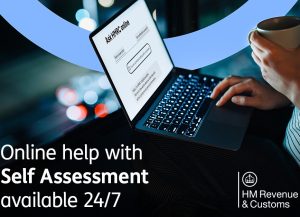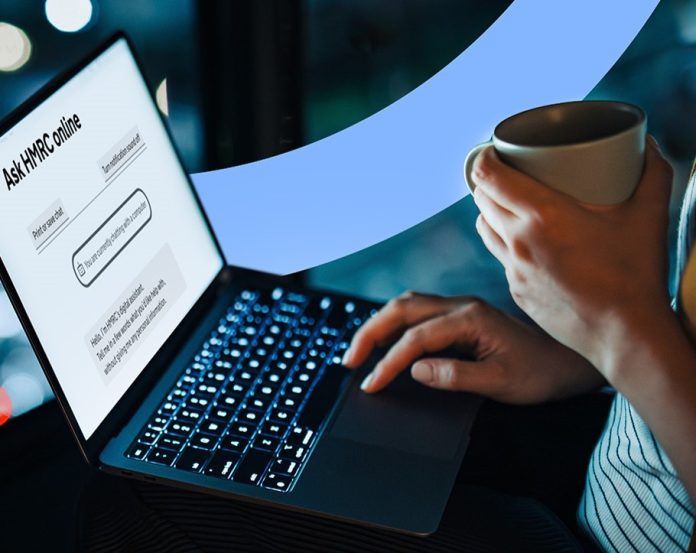More than 12 million people are expected to complete a Self Assessment tax return for the 2023 to 2024 tax year by January 31. While many may not look forward to submitting their annual tax return, there is still time to take action and meet the deadline. HMRC answers those questions you may be afraid to ask about Self Assessment, to help you get started.
Who needs to file a Self Assessment tax return?
You must send a tax return for example, if:
- you were self-employed or a sole trader earning more than £1,000
- you were a partner in a business partnership
- you have taxable income of more than £150,000
- you had to pay Capital Gains Tax when you sold or disposed of something that increased in value
- you have to pay the High Income Child Benefit Charge
You may also need to send a tax return if you have any untaxed income, such as:
- money from renting out a property
- tips and commission
- income from savings, investments and dividends
- foreign income
If you are employed, then your employer will deduct any tax owed (Income Tax and National Insurance) before they pay you. This is known as PAYE (Pay As You Earn). But if you have any additional income, which has not been taxed, you may need to do a tax return.
If you receive pension payments from more than one provider (for example, a workplace pension and a personal pension), HMRC will ask one of your providers to take the tax due on your State Pension. If you don’t have an employer deducting your Income Tax or National Insurance, you may be required to do a Self Assessment tax return.
You can check if you need to complete a tax return on GOV.UK.
When is the deadline?
You must file your online Self Assessment tax return and pay any tax owed by January 31. Missing the deadline can result in penalties for late filing or late payment and interest charges, so it is crucial to act promptly. If you need to tell HMRC you no longer need to complete a tax return complete the online form today.
Am I too late to register for Self Assessment?
If you are new to Self Assessment, you need to register before you can send your tax return. You can register on GOV.UK. You should allow up to 10 working days to receive your Unique Taxpayer Reference (UTR) in the post. You can access your UTR more quickly through HMRC Online Services or the HMRC app.
What records do I need to keep?
You should maintain records of all income, expenses and supporting documents such as bank statements and invoices; records of employment such as a P60 or P45 (if employed); details of any pensions, savings, or investments; rental income and associated expenses; receipts for any other allowable expenses. HMRC advises keeping records for at least 5 years after the filing deadline. Find out what records to keep on GOV.UK.
What expenses can I claim?
If you are self-employed or a sole trader you can claim allowable expenses such as office costs (e.g. stationery, utilities), business travel, business insurance, stock or raw materials, professional services (e.g. accounting fees). You can deduct some of these costs to work out your taxable profit as long as they’re allowable expenses.
Where can I get help with my tax return?
HMRC wants to help you get your tax right. There are many ways to get help and support online, this includes:
- a wide range of ‘how to’ and ‘explainer’ videos on YouTube
- live webinars that you can join where you can ask questions, or if you cannot attend you can watch them on demand
- tools that include HMRC’s digital assistant, self-employed tax calculators and the HMRC app
- Refer to our Help Online for Self Assessment at GOV.UK
How do I pay my tax?
 There are a number of payment options to pay your Self Assessment tax bill. Increasingly popular is the HMRC app and once setup you can make (or receive) secure payments directly to HMRC. You can also set payment reminders within the app so you never miss a deadline. Last year there was 173% increase in customers choosing to pay through the app.
There are a number of payment options to pay your Self Assessment tax bill. Increasingly popular is the HMRC app and once setup you can make (or receive) secure payments directly to HMRC. You can also set payment reminders within the app so you never miss a deadline. Last year there was 173% increase in customers choosing to pay through the app.
Alternatively, you can pay directly on GOV.UK, via online or telephone banking, or you can make a payment with a debit or corporate credit card or Direct Debit (either single payment or regular instalments). Other payment methods are available and you can find out more information at GOV.UK.
Make sure to use your Unique Taxpayer Reference as the payment reference for each transaction and ensure payments reach HMRC by 31 January 2025 deadline to avoid penalties.
What happens if I miss the filing or payment deadline?
The deadline for submitting your tax return and paying any tax owed is 31 January. If you miss the deadline, you could face a penalty. You should still act and submit your tax return as soon as possible.
The penalties for late tax returns are:
- an initial £100 fixed penalty, which applies even if there is no tax to pay, or if the tax due is paid on time
- after 3 months, additional daily penalties of £10 per day, up to a maximum of £900
- after 6 months, a further penalty of 5% of the tax due or £300, whichever is greater
- after 12 months, another 5% or £300 charge, whichever is greater
There are also additional penalties for paying late of 5% of the tax unpaid at 30 days, 6 months, and 12 months. If tax remains unpaid after the deadline, interest will also be charged on the amount owed, in addition to the penalties above.
How do I correct a mistake on my tax return?
Make sure you allow yourself plenty of time to check your return before submitting – this will help you spot any errors before you submit your return. However, if you discover an error, you can amend your return online within 12 months of the filing deadline. Login to your online account, select the relevant return and make the corrections. If it is a paper return, you must submit a completely new return, clearly marking it as an amendment when you resubmit it.


Comments are closed.